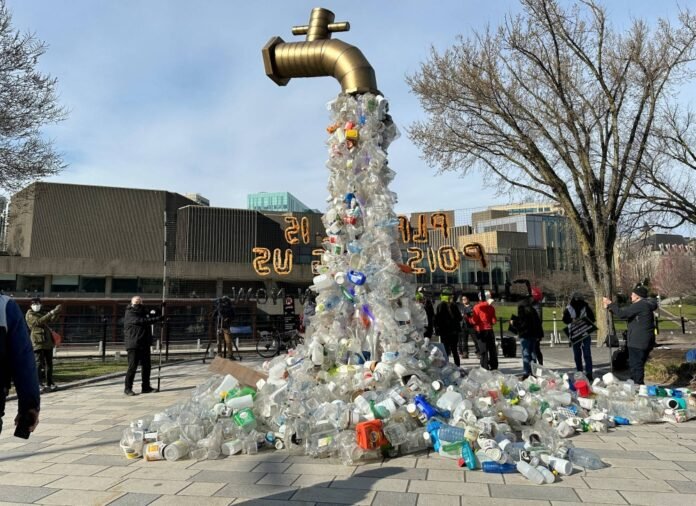Negotiations on a future global treaty to tackle rising plastic pollution went into overtime Tuesday morning amid tense debates over whether the world should try to limit the amount of plastic being made.
As the weeklong talks ended before dawn in the Canadian capital Ottawa, the countries agreed to continue their work in ad hoc meetings before the final summit scheduled to begin on November 25 in Busan, South Korea.
That work includes finding forms of financing to help developing countries implement the treaty. Countries also agreed to develop a process to identify plastic chemicals that are hazardous and plastic products that are wasteful, such as single-use plastic containers.
But they failed to establish a formal process to assess how much new plastic is produced or to determine how much can be considered unsustainable.
The hoped-for treaty to be agreed in Busan could be the most significant agreement on climate change emissions and environmental protection since the 2015 Paris Agreement.
“This is one small step on a very long path,” said Sivendra Michael, chief negotiator for the Pacific island of Fiji. “We literally have seven months left to deliver on this promise (to curb plastic pollution).”
More than fifty countries supported a proposal from Rwanda and Peru to assess what a sustainable level of plastic production could look like.
Plastic production is on track to triple by 2050, but current levels are already “unsustainable and far exceed our recycling and waste management capabilities,” according to Rwanda’s chief negotiator Juliet Kabera.
With some parties objecting to limiting plastic production, a group of 28 countries have pledged to continue the treaty efforts, including production caps.
The science is clear: we must first tackle unsustainable levels of plastic production if we want to end plastic pollution worldwide, says Christophe Bechu, France’s minister for ecological transition.
Efforts to target production have met strong opposition from some petrochemical-producing countries, including Saudi Arabia and China, and from industry groups lobbying in Ottawa.
They argued that with the final summit just seven months away, countries should focus on less controversial topics such as plastic waste management and product design.
China’s chief negotiator in Ottawa, Yang Xiaoling, said countries should limit their ambitions to reach consensus on a treaty later this year.
Too many compromises
Environmental groups observing the talks warned that too much political compromise would weaken the effectiveness of any eventual treaty.
“The topics agreed (for further discussion) do not cover the full range of issues on the table,” said Christina Dixon, ocean activist for the Environmental Investigation Agency.
But some welcomed a close focus on certain issues, including harmful chemicals.
“Plastics and toxic plastic chemicals are crossing our borders with little or no controls or protections for our health,” said Griffins Ochieng, executive director of the Center for Environment Justice and Development in Kenya.
While the talks were taking place in Ottawa, the Aamjiwnaang First Nation declared a state of emergency in the same province of Ontario due to a release of carcinogenic benzene from an industrial facility.
Aamjiwnaang councilor Janelle Nahmabin called the incident an “unfortunate example” of “what these negotiations are really about.”



